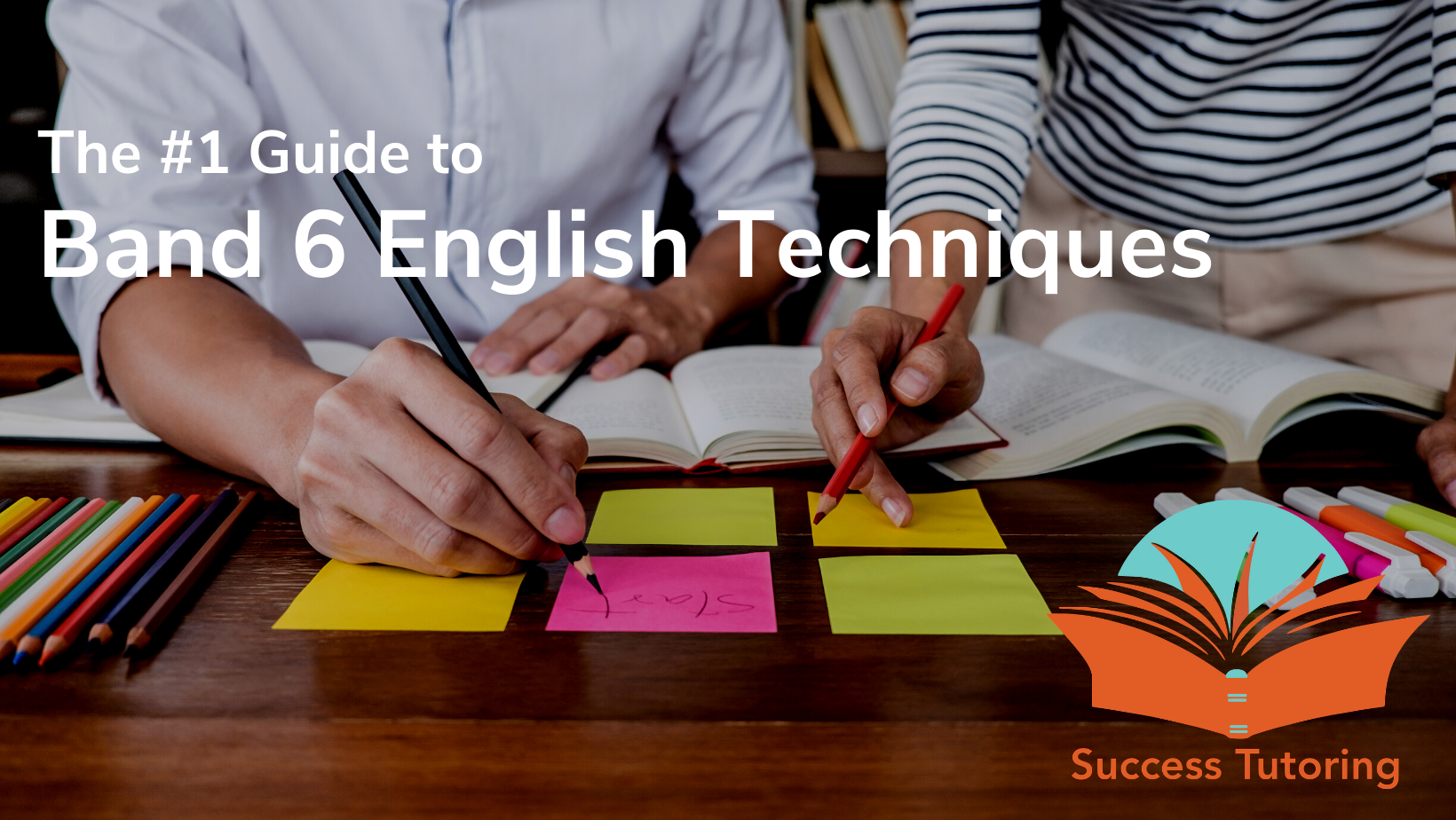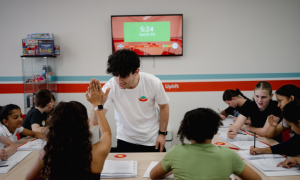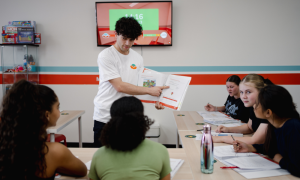What are English Techniques?
English techniques are so important for students in grades 7-12. They form the foundation for English in high school and are so important when analysing English texts. Our team has combined a list of the most popular English techniques.
What are English Techniques used?
Techniques help composers express themes more effectively. Generally, the more English techniques a text has, the more effective it is at communicating ideas. For example, popular novel, Nineteen Eighty Four which was written by George Orwell is remembered for the famous quote; “War is Peace; Freedom is Slavery; Ignorance is Strength.” This quote is a perfect example of Irony where the manipulation of truth becomes truth in literature.
You can find more techniques by getting in touch with our expert tutors at one of our campuses!
English Techniques for Poems
- Juxtaposition: The fact of two things being seen or placed close together with contrasting effect. For example: different races, boy and girl, tall and short.
- Enjambment: Is incomplete syntax at the end of a line; the meaning runs over from one poetic line to the next, without terminal punctuation. In other words, it’s when a stanza ends without a full stop and the poem continues on to the next.

English Techniques for Short Stories
- Alteration: The occurrence of the same letter or sound at the beginning of adjacent or closely connected words. For example, Coca Cola, Donald Duck, Spongebob Squarepants, Pay Pal.
- Simile: Using ‘like’ or ‘as’. For example, She swims like a fish or He’s as hairy as a gorilla.
- Allegory: A story, poem, or picture that can be interpreted to reveal a hidden meaning, typically a moral or political one. For example, in George Orwell’s, novel, Animal Farm; animals run a society that divides into factions and mirrors the rise of Leon Trotsky and the Russian Revolution. The story can be read as a fable of farm animals running a society, or it can be interpreted as the author’s criticism of communism.
- Foreshadowing: A warning or indication of (a future event). For example, when an author uses dialogue, such as “I have a bad feeling about this”.
- Hyperbole: Are exaggerated statements or claims not meant to be taken literally. For example, “There’s enough food in the cupboard to feed an entire army!”
- Personification: The attribution of a personal nature or human characteristics to something non-human, or the representation of an abstract quality in human form. For example, Lightning danced across the sky.
- Cliché:
- Exclamation
- Rhetorical Question
- Imagery
- Intertextuality
- First Person
- Second Person
- Third Person

English Techniques for Images
- Contrast
- Close-up
- Medium-shot
- Background
- Foreground
- Mid ground
- Vector Lines
- Salience
- Symbolism
- Colour
- Framing
- Icon

English Techniques for Short Films
- Panning
- Bird’s eye angle
- Lighting
- Costuming
- Dialogue
- Tone
- Body Language
- Facial Expression
- Transition
Interested in finding out more? Find out more about our online and in person tutoring services! With locations across Australia, find your nearest campus today! Locations in Parramatta, Bayside, Bossley Park and more! Discover how it feels to be a student of the World’s most motivational, inspirational and uplifting tutoring network today! Did you know? Success Tutoring also offers franchising opportunities for people who are interested in running their own business! Find out more today!





